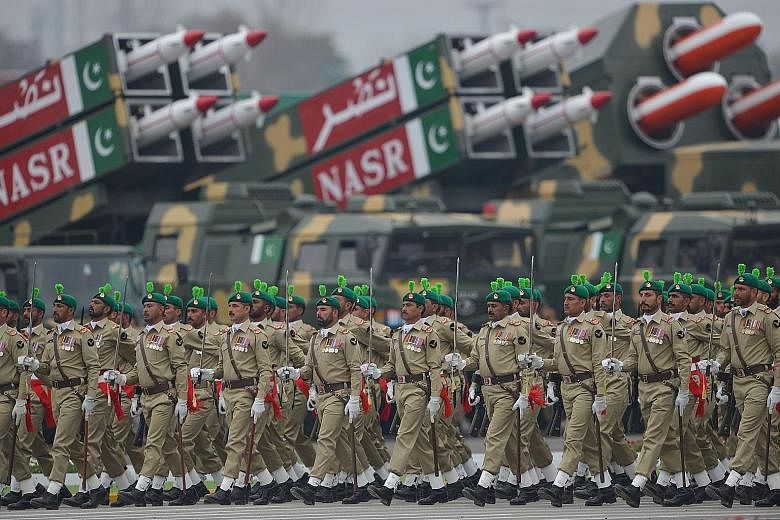ISLAMABAD • Threats, arrests, blocked accounts and restricted posts - Big Brother is watching more closely than ever in Pakistan as the authorities accelerate efforts to censor social networks, further reducing an already shrunken space for dissent.
In the past 18 months, a slew of journalists, activists, and government opponents - both at home and overseas - have faced intimidation or the threat of legal action for their online posts.
Censorship is already rife among Pakistan's mainstream media, with the Committee to Protect Journalists noting last year that the military had "quietly but effectively" imposed strict limits on the scope of general news reporting.
Platforms such as Facebook and Twitter were regarded as the last holdouts of dissenting voices, but now that has changed.
In February, the authorities announced the creation of a new enforcement arm to root out social media users accused of spreading "hate speech and violence" as part of the crackdown.
Columnist Gul Bukhari, a sometime government critic who was briefly abducted by unidentified men last year, said the assault on social media was carefully organised and coordinated. "It is the last frontier they are trying to conquer."
Journalist Rizwan-ur-Rehman Razi was arrested in February at home in the eastern city of Lahore for publishing "defamatory and obnoxious" content against the state.
A few days earlier, he had criticised extrajudicial executions allegedly committed by the security forces, according to a copy of his tweets seen by Agence France-Presse. Released after two nights, he has not tweeted since, and his posts have been deleted.
The net cast by the crackdown is a wide one, with Mr Shahzad Ahmad, director of the digital security non-governmental organisation Bytes for All, pointing to the harassment of civil rights activists, the political opposition and bloggers.
According to Ms Annie Zaman, an expert on cyber censorship in Pakistan, this is made possible by an all-encompassing 2016 law that prohibits online posts that are deemed to compromise state security or offend anything from "the glory of Islam" to non-defined notions of "decency and morality".
"Because this law is vague, it gave more space to the authorities to censor online," Ms Zaman said.
Offenders can face up to 14 years in prison.
The military signalled its involvement in the campaign as early as last June, when spokesman Major-General Asif Ghafoor boasted of the capacity to monitor social media accounts during a televised press conference.
Facebook and Twitter transparency reports show the crackdown was already well underway last year, with a huge spike in requests by the Pakistani government seeking to censor online activity.
Facebook restricted more content in Pakistan than in any other country in the first six months of 2018, according to its transparency figures from that time period, which are the most recently available.
Twitter data for the same period showed a similar trend, with requests to remove content from 3,004 accounts in Pakistan, up from 674 in the second half of 2017.
Twitter routinely sends out a notice to users notifying them when the company receives complaints that their posts have violated a country's laws.
AFP has found dozens of users who received such a message warning they had violated Pakistani laws - including 11 who had tweeted from beyond Pakistan's borders, in countries such as Australia, the US and Canada.
The requests represent "a government censor overstepping jurisdiction boundaries", said Ms Jillian York from the Electronic Frontier Foundation, an American NGO.
AGENCE FRANCE-PRESSE

